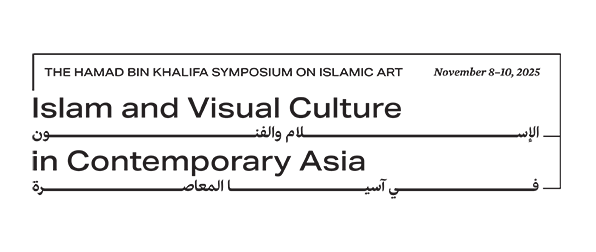Keynote Speaker
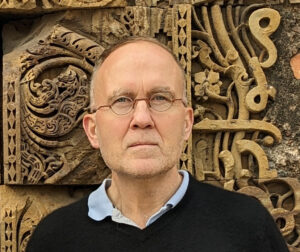
Finbarr Barry Flood is director of Silsila: Center for Material Histories and William R. Kenan, Jr., Professor of the Humanities at the Institute of Fine Arts and department of Art History, New York University. He researches and writes on the art, architecture and material culture of Islamic and Islamicate societies, with a particular emphasis on transcultural dimensions of circulation and reception. Recent work explores questions of materiality, mediation and replication in relation to devotional and therapeutic practices across the longue durée.
His work has been supported by fellowships from the University of Oxford, the Center for Advanced Study in the Visual Arts at the National Gallery in Washington, D.C., the Smithsonian Institution, the Sterling and Francine Clark Art Institute, the Getty Research Institute, the Carnegie Foundation, the American Council of Learned Societies and the Wissenschaftskolleg zu Berlin.
Publications include The Great Mosque of Damascus: Studies on the Makings of an Umayyad Visual Culture (2000); Objects of Translation: Material Culture and Medieval “Hindu-Muslim” Encounter (2009), awarded the 2011 Ananda K. Coomaraswamy Prize of the Association for Asian Studies; the two-volume Blackwell Companion to Islamic Art and Architecture (2017), co-edited with Professor Gülru Necipoğlu of Harvard University, and Technologies de dévotion dans les arts de l’islam: pèlerins, reliques, copies (Musée du Louvre/Hazan, 2019), published when he held the Chaire du Louvre at the Musée du Louvre in Paris in 2019. In autumn 2023, Tales Things Tell – Material Histories of Early Globalisms, co-written with Professor Beate Fricke, University of Bern, will be published by Princeton University Press. He is currently completing a long-term a book project, provisionally entitled Islam and Image: Contested Histories, which formed the basis of the Slade Lectures, delivered at the University of Oxford in spring 2019.
Presenters
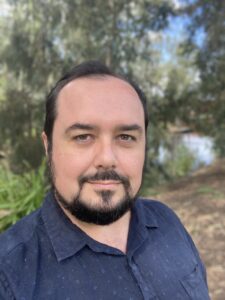
Sam Bowker is associate professor at Charles Sturt University. He is an art historian who studies Egyptian art and Australian contributions to the global field of Islamic art. As curator, his exhibitions include Khayamiya: Khedival to Contemporary (2015-2016) for the Islamic Art Museum Malaysia and Windowless Worlds (2021) for the National Art Glass Gallery in Australia. He was the co-editor of Deconstructing Myths of Islamic Art with Onür Oztürk and Xenia Gazi (2022) and the co-author of The Tentmakers of Cairo with Seif El Rashidi (2018). His collaborative creative practice includes original khayal al-zill shadow concerts with Australian musicians, including The Thief of Stars (2021) and The Alchemist’s Jar (2023), co-created with his wife Melinda Bowker (‘Green Beetle Company’). He previously worked for the National Portrait Gallery and National Museum of Australia, and originally lectured in Art Theory for the Australian National University, where he completed his Ph.D. He lives in Wagga Wagga in Wiradjuri country in Australia. He was the beneficiary of a Hamad bin Khalifa travelling fellowship in 2017, and is honored to return as a guest speaker in 2023.
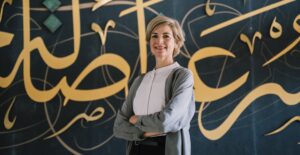
Karen Exell is Executive Director of Cultural Strategy and Development at Diriyah Gate in Riyadh, Saudi Arabia, responsible for the delivery of the cultural vision and over 40 cultural assets within the Diryah Gate project, including museums dedicated to Islamic calligraphy, modern and contemporary Arab and Islamic art and Saudi history. Previous roles include Director of Lusail Museum (2022-2023), Senior Development Director for Cultural Assets at Diriyah Gate, Riyadh (2020-2022), and the delivery of the National Museum of Qatar under the leadership of Sheikha Amna bint Abdul Aziz Al Thani, then NMoQ Director from 2015 to 2019. She also directed the MA in Museum and Gallery Practice at UCL Qatar from 2011 to 2015. Past publications include the monographs, Modernity and the Museum in the Arabian Peninsula (Routledge, 2016), and The Global Spectacular: New Museum Architecture in China and the Arabian Peninsula (Lund Humphries, April 2018), and the co-edited volumes, Cultural Heritage in the Arabian Peninsula: Debates, Discourses and Practices (Ashgate, 2014) and Museums in Arabia: Transnational Practices and Regional Processes (Routledge, 2016).
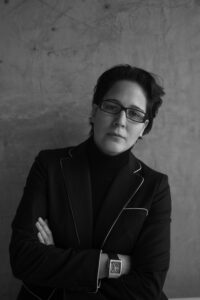
Talinn Grigor is professor of art history in the Department of Art and Art History at the University of California, Davis. Her research traces 18th- to 20th-century architectural histories through postcolonial, race, and critical theories grounded in Iran, Armeno-Iran, and Parsi India. Her books include The Persian Revival: The Imperialism of the Copy in Iranian and Parsi Architecture (2021), a winner of the Saidi-Sirjani Book Award from the Association of Iranian Studies and an Honorable Mention by the Sharmin and Bijan Mossavar-Rahmani Center for Iran and Persian Gulf Studies at Princeton University; Contemporary Iranian Art: From the Street to the Studio (2014); and Building Iran: Modernism, Architecture, and National Heritage under the Pahlavi Monarchs (2009).
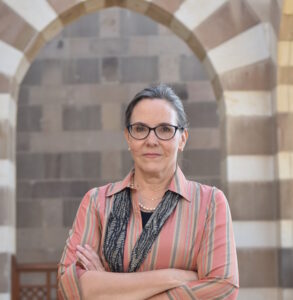
Ellen Kenney is associate professor of Islamic art and architecture at the American University in Cairo (AUC) and currently serves as chair of the Department of Arab and Islamic Civilizations. Kenney’s commitment to expanding the traditional scope of the field is what initially drew her to study art history. She received her Ph.D. from NYU’s Institute of Fine Arts in 2004, and published her thesis, Power and Patronage in Medieval Syria: The Architecture and Urban Works of Tankiz al-Nasiri, in 2009. Before joining the AUC in fall 2011, she worked as a researcher in the department of Islamic Art at the Metropolitan Museum of Art. Her research interests include Mamluk and Ottoman Egypt and Syria, Rasulid Yemen, and medieval global exchange. She is currently at work on two book projects: A City in Objects: Medieval Damascus and Material Culture and Mamluk Art and its Global Horizons: Patronage, Mobility, and Exchange.
Roundtable Speakers
Noora Abdulmajeed is an Associate Curator at Mathaf: Arab Museum of Modern Art. Most recently, she co-curated the permanent collection galleries, introducing new sub-themes and interpretative content while expanding the display’s geographical and cultural scope. From 2012 to 2016, she curated the public engagement programs at the Museum of Islamic Art in Doha, focusing on the historical links between Islamic art, the cultural identity of the Gulf and contemporary art practices rooted in heritage. Her research interests include histories of visual culture, diversity in museum practice centered on minority groups, discourses around Arabism and modernity, amongst others. Noora holds a BA in Social and Cultural Studies (University of Nottingham, 2011) and an MA in History of Art (Birkbeck College, University of London, 2017).
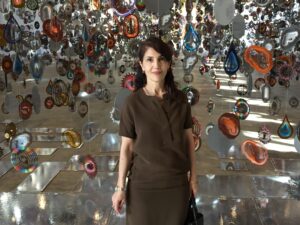
Nebahat Avcıoğlu is associate professor of Islamic art and architecture at Hunter College and the Doctoral Faculty at the Graduate Center, City University of New York. She received her B.A. in Architecture from Istanbul Technical University, and her Ph.D. in History of Art from the University of Cambridge. She is the author of Turquerie and the Politics of Representation, 1728–1876 (2011, Turkish edition 2014, paperback 2016). She has co-edited Globalising Cultures. Art and Mobility in the Eighteenth Century (Smithsonian Institute 2011); Architecture, Art and Identity in Venice and its Territories (Routledge 2013); and Artistic Practices and Cultural Transfer in Early Modern Italy (Routledge 2015). She has guest edited The Culture of Albums in the 18th Centuryfor the special issue of Journal18 (Fall 2018). Her recent publications include “The Modern and Contemporary Mosque in Europe” (2022); and “Immigrant Narratives: The Ottoman Sultan Portraits in Elisabeth Leitner’s Family Photo Album of 1862-1873,” Muqarnas 36 (2018). She is finishing her book, The Modern and Contemporary Mosque: A Global Approach.
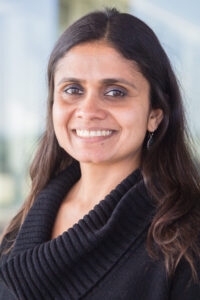
Aditi Chandra teaches art history at the University of California, Merced and specializes in the Islamic world, with a focus on South Asia. Her research shows how, in the 19th and 20th centuries, physical transformations and subaltern actors disrupting statist narratives rendered the monument unruly even as the state attempted to order it. Her book Unruly Monuments: Disrupting the State at Delhi’s Islamic Architecture is forthcoming with Cambridge University Press. She is co-editor (with Vinita Chandra) of Nations and its Margins: Re-thinking Community (Cambridge Scholars Publishing, 2019). She has curated exhibitions showcasing colonial visual travel ephemera.
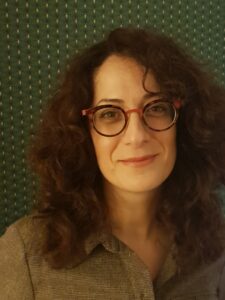
Negar Habibi (PhD, 2014) is a Lecturer of the Arts of Iran and Islam at the University of Geneva, Switzerland. She holds a doctorate in art history from the University of Aix-Marseille (France). Habibi is the author of a monograph on Ali Qoli Jebadar and The Safavid Occidentalism (in French, Brill 2018), as well as several articles and book chapters on painting production, women’s patronage and Iranian society in 17th-century Isfahan. Habibi’s current project, financed by the Soudavar Memorial Foundation (SMF) is a study of the Jean Pozzi Islamic and Persian collections shared between several European museums. Habibi is an SMF alumnus for a lectureship she held on the art and architecture of the Three Gunpowder Empires at the University of Geneva in 2019-2021. She is the guest editor of the fifth issue of the Manazir Journal, published jointly by the University of Bern and the University of Geneva titled, The Idea of Just Ruler in the Persianate World and Its Embodiment in Art and Material Culture (September 2023).
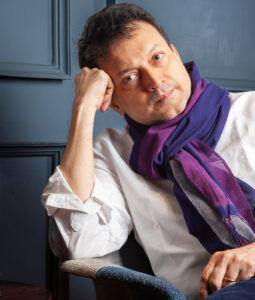
Ranjit Hoskote is a poet, cultural theorist, and independent curator. His collections of poetry include, most recently, Jonahwhale (Penguin, 2018), Hunchprose (Penguin, 2021), and Icelight (Wesleyan University Press, 2023). Hoskote curated India’s first-ever national pavilion at the Venice Biennale (2011), co-curated the 7th Gwangju Biennale (2008), and was a contributor to the Former West cycle of BAK/ basis voor actuele kunst, Utrecht. He serves on the advisory board of the triennial Bergen Assembly, and has served previously on the advisory boards of the Haus der Kulturen der Welt (HKW), Berlin, and the Nanyang Technological University’s Centre for Contemporary Art (NTU-CCA), Singapore. Hoskote is a research and curatorial consultant with Mathaf: The Arab Museum of Modern Art, Doha.
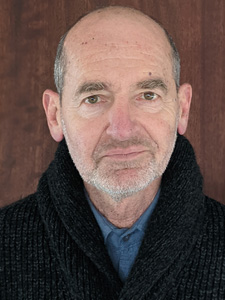
Vasif Kortun is a curator, writer, and teacher of visual art, its institutions, and spatial practices. Kortun was the founding director of Research & Programs of SALT, an intradisciplinary cultural institution based in Turkey. A recipient of the Award for Curatorial Excellence from Bard College, he curated many biennials and served on juries, such as the Turner Prize, Velasquez Prize, and Belvedere Award. He is the chairperson of the board at the Foundation for Art Initiatives, SALT, and the Museum of Contemporary Art in Antwerp. Kortun has written extensively on contemporary art and the cultural situation for books and other publications. In 2023 he co-edited Özer Kabaş: Sentez ve Montaj and Gürel Yontan Serseri Mayın, both published in 2023.
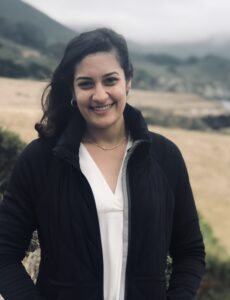
Aparna Kumar is a lecturer in art and visual cultures of the Global South in the department of History of Art at University College London, and a Getty/ACLS Postdoctoral Fellow in History of Art (2023-24). She received her Ph.D. in Art History at the University of California, Los Angeles in 2018. Her research and teaching focus on modern and contemporary South Asian art, 20th-century partition history, museum studies, and postcolonial theory. Kumar’s research has been supported by fellowships from the Getty Foundation, American Council for Learned Societies, Fulbright-Nehru Program, American Institute of Indian Studies (AIIS), American Institute of Pakistan Studies (AIPS), Critical Language Scholarship Program, and University of California, Los Angeles. Her dissertation project, Partition and the Historiography of Art in South Asia, was awarded the inaugural UC Berkeley South Asia Art and Architecture Dissertation Prize in 2021.
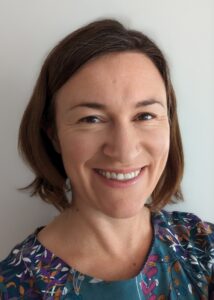
Jenny Norton-Wright is currently Arabic Scientific Manuscripts Curator at the British Library. She was the editor of Curating Islamic Art Worldwide: From Malacca to Manchester (Palgrave, 2019), which grew out of the international conference she organized as Early Career Curator for Islamic and South Asian Art at the Manchester Museums Partnership. She previously worked for The Islamic Manuscript Association (TIMA) and the UK’s Subject Specialist Network for Islamic Art and Material Culture. Norton-Wright’s interests encompass Arabic manuscript cultures from North Africa to Indonesia, provenance and collection histories, and digital humanities, as well as ceramics of the Islamic world.
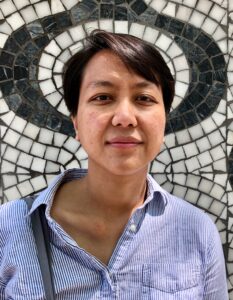
Anissa Rahadiningtyas is an art historian focusing on Islam and modern and contemporary art in Southeast Asia. She is currently an assistant curator at the National Gallery Singapore after receiving her Ph.D. in art history from Cornell University. She has published in several digital open-access publication portals and journals. Her research interests include the intersection of modernity, religiosity, rituals and performances, environmentalism, reparative feminism, and ideas of futurism from Southeast Asia and the wider Indian Ocean world.
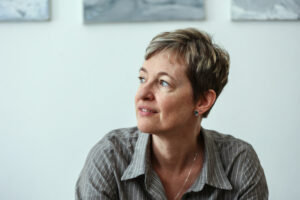
Kirsten Scheid teaches at the American University of Beirut as associate professor of anthropology and affiliated faculty in Fine Art and Art History. She published Fantasmic Objects: Art and Sociality from Lebanon 1920-1950 (Indiana University Press) in 2022. Her curatorial practice includes the projects Four Generations of Lebanese Women Artists on Women in Art (2001, Beirut), Historical Modernisms at ArteEast.org (2005-2008), The Arab Nude: The Artist as Awakener (2016, Beirut), Jerusalem: Actual and Possible (2018, Jerusalem), and Partisans of the Nude: An Arab Art Genre in an Era of Contest (2023, New York).
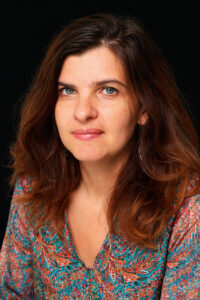
Mirjam Shatanawi is a lecturer of heritage theory at the Reinwardt Academy, Amsterdam University of the Arts. She is the author of Islam at the Tropenmuseum (2014) and co-editor of Islam and Heritage in Europe: Pasts, Presents and Future Possibilities (Routledge, 2021). Her recent work addresses the silences surrounding Indonesian Islam in museum collections and displays. Between 2001 and 2018, she worked as a curator at the National Museum of World Cultures in the Netherlands.
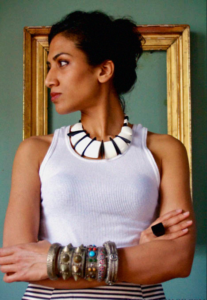
Sadia Shirazi is a writer, art historian, curator and sometimes architect based between London and New York. She is currently Curator of International Art at the Tate Modern. Shirazi has lectured and presented their research at venues including King’s College, Cambridge University, New York University and The Whitney Museum of American Art. Shirazi is a recipient of The Andy Warhol Foundation Arts Writers Grant and a Fulbright award. Their current book project is about Zarina, Nasreen Mohamedi and Lala Rukh. Shirazi earned a Ph.D. from Cornell University in the department of the History of Art and Visual Studies.
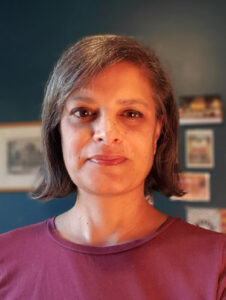
Marika Sardar is a consultant and independent scholar who has held curatorial positions at the Aga Khan Museum in Toronto, the Museum of Islamic Art in Doha, The San Diego Museum of Art, and the Metropolitan Museum of Art in New York. She has published on the architecture, paintings and textiles of India, and has created a number of exhibitions and permanent gallery installations relating to her specialties of South Asian and Islamic art. She holds a PhD from the Institute of Fine Arts, New York University.
Discussants
Maggie Unverzagt Goddard is a postdoctoral fellow in History and co-directs the Public Humanities Lab at VCU’s Humanities Research Center. Her writing on aesthetics and politics engages visual culture studies, public humanities, and critical theories of the body. She previously worked in public engagement and curation at the Smithsonian, moCa Cleveland, and the Corcoran Gallery of Art. She holds a Ph.D. in American Studies and an M.A. in Public Humanities from Brown University.
Neelima Jeychandran is an assistant professor of Art History at Virginia Commonwealth University, Qatar. She is an ethnographer, editor, and scholar who works on visual cultures and oceanic histories of West and East Africa and the western Indian Ocean. She is co-editor of the book Reimagining Indian Ocean Worlds (Routledge, 2020), the co-editor of the Verge journal issue on “Indian Ocean Studies, African-Asian Affinities” (2022), and the series co-editor of the Routledge Indian Ocean and Trans-Asia book series. Jeychandran is currently finishing her book in which she explores material and immaterial circuits of exchanges between the Atlantic and the Indian Ocean worlds.
Monica Merlin is assistant professor in the Art History Department at VCUarts Qatar. With a specialization in Chinese studies and Asian art, and a doctorate in Art History (Oxford University), her research reevaluates the practice of Chinese contemporary women artists focusing on gender, feminisms, activism, and intersectionality. Merlin has contributed to encyclopedic and curatorial projects, and her publications are included in peer-reviewed journals and edited volumes.
Holiday Powers is assistant professor of global modern and contemporary art with an emphasis on art in the Arab world at VCUarts Qatar. Her first book, Moroccan Modernism, is forthcoming in the New African Histories series at the Ohio University Press. Her research emphasizes the articulation of local and transnational discourses in modern and contemporary art, particularly within the Arab world, from the perspective of postcolonial and feminist theory.
Jochen Sokoly is associate professor of art history of the Islamic world at VCUarts Qatar. He has been an elected member of the Council of the Royal Asiatic Society, London and Gallery Director at VCUarts Qatar. He has twice been co-chair of the Hamad bin Khalifa Symposium on Islamic Art. Sokoly has been a research fellow at Harvard University, the Metropolitan Museum of Art, and the Royal Ontario Museum, and a curatorial consultant at the Al-Sabah Collection, researching the context of court, administration and manufacture during the Early Islamic caliphates. Sokoly received his D.Phil. from the University of Oxford and holds degrees from the School of Oriental and African Studies, London.
Tobias Wofford is an associate professor in the Department of Art History at Virginia Commonwealth University. His research explores the meeting of globalization and identity in the art of the African Diaspora, as well as concepts of diversity and multiculturalism in the United States. His writing has appeared in venues including Art Journal and Third Text. In 2021-2022, Wofford was a senior fellow for the Getty Research Institute’s African American Art History Initiative.
